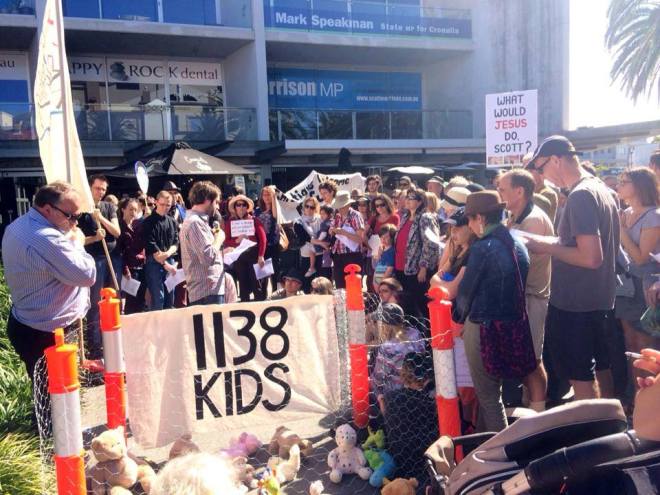On Holy Saturday of this year (April 19, 2014), more than 100 people came together for a peaceful, public, Christian prayer vigil for asylum seekers, outside (Minister for Immigration and Border Protection) Scott Morrison’s office in Cronulla Mall.
The event—organised by a group called ‘Love Makes a Way‘—included elements of lament, confession, a statement of faith, readings from the scriptures, and prayer. Below is the text of the short sermon I delivered as part of the proceedings, reflecting on what it means to stand in solidarity with asylum seekers with a ‘Holy Saturday faith’.

Continue reading Holy Saturday Vigil for Asylum Seekers – Love Makes a Way